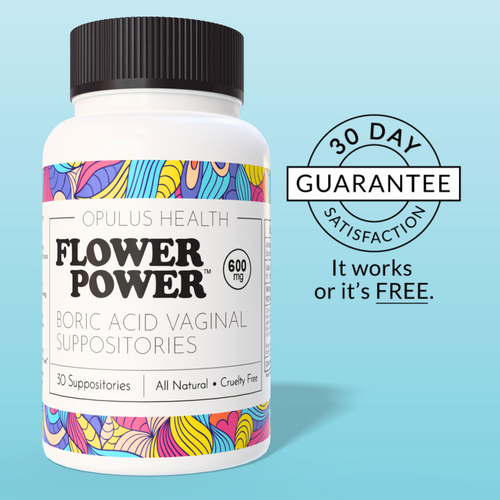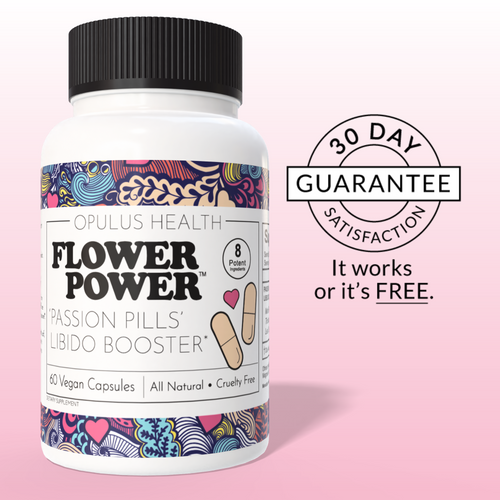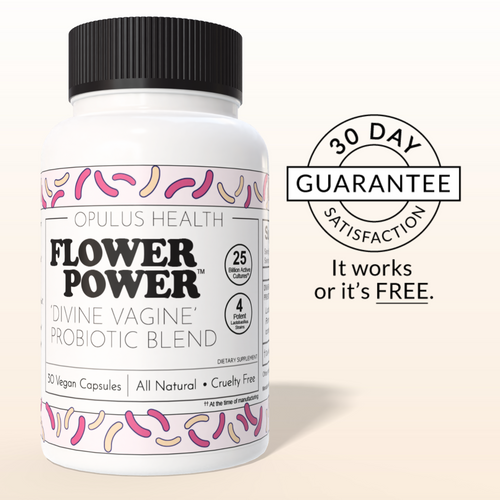Table of Contents
Staying hydrated each day does more than ease thirst—it fuels core aspects of feminine health. Proper hydration supports energy, circulation, hormone balance, digestion, and even reduces the risk of urinary tract issues. When women meet their daily fluid needs, they often notice brighter focus, steadier moods, smoother skin, and improved physical performance.
At Flower Power, we like to say hydration is more than a glass of water—it’s a ritual of self-respect. Pairing smart hydration habits with intimate wellness support (think She Juicy for internal hydration) helps women feel radiant and balanced from the inside out.
Why Daily Hydration Matters for Feminine Health
Hydration isn’t just about quenching thirst. It shapes how your body regulates hormones, manages reproductive functions, and sustains energy throughout the day.
Hydration and Hormonal Balance
Hormones like estrogen and progesterone directly influence how your body retains and uses water. During certain menstrual phases, fluid shifts are more pronounced—bloating, swelling, or fatigue often appear when hydration dips.
When you’re dehydrated, blood volume decreases, slowing the transport of hormones in the bloodstream. This can make PMS symptoms like headaches or mood swings worse. Adequate hydration helps kidneys and the liver process hormones efficiently, keeping fluctuations more stable and less disruptive.
Water’s Role in Reproductive Health
Hydration plays a surprisingly intimate role: it supports cervical mucus production, critical for fertility. Proper water intake ensures the right consistency, making it easier for sperm to travel.
It also promotes blood flow to the uterus and ovaries, delivering the oxygen and nutrients tissues need for healthy function. Dehydration, by contrast, can worsen cramps and make cycles feel more irregular.
Energy and Fatigue Control
Ever notice how sluggish you feel after skipping water? Even mild dehydration reduces alertness and raises fatigue. Your body needs water to transport glucose and oxygen to cells—it's essential fuel. Low hydration can lower blood pressure, leaving you dizzy, foggy, or drained.
Simple rituals like carrying a refillable bottle, drinking water with meals, and swapping sugary drinks for water help keep energy steady.
Key Benefits of Proper Hydration for Women
Skin Health and Elasticity
Water keeps the outer skin layer hydrated, reducing dryness and flaking. Circulation also improves, delivering nutrients that enhance tone and elasticity. Combined with water-rich foods like cucumbers or oranges, hydration creates that natural glow no cream can replicate.
Digestion and Nutrient Absorption
Hydration keeps digestion moving smoothly, preventing constipation and bloating. It also dissolves nutrients like vitamins and minerals so they can be absorbed efficiently into the bloodstream. Staying hydrated means your meals actually work for you.
Cognitive Function and Mood
Even a 1–2% drop in hydration can mess with concentration, memory, and mood. Adequate hydration supports steady blood flow to the brain, stabilizing energy and focus throughout the day. It’s why many women notice irritability or mental fog lift after simply rehydrating.
Hydration Needs Across Life Stages
Hydration isn’t one-size-fits-all—it evolves with your body’s changing demands.
Menstrual Cycle
During the luteal phase, higher progesterone levels may cause fluid retention while still reducing actual hydration. Drinking consistently helps ease headaches, fatigue, and bloating.
Pregnancy and Breastfeeding
Pregnancy raises blood plasma volume by nearly 50%, demanding more water. Dehydration during this time increases the risk of UTIs, constipation, and fatigue. After childbirth, hydration remains essential for recovery, while breastfeeding adds another 700–1000 ml of daily fluid demand.
Physical Activity
Workouts and heat amplify water loss through sweat. Even small drops in hydration impair performance and recovery. Women especially benefit from pre-hydrating before exercise and replenishing with electrolytes afterward.
Optimizing Daily Hydration: Practical Strategies
Electrolytes and Mineral Balance
It’s not just water—you need minerals too. Sodium, potassium, calcium, and magnesium regulate muscle and nerve function. Losing these through sweat without replacing them can cause fatigue or cramps. Adding coconut water, mineral water, or potassium-rich foods like bananas and leafy greens keeps balance in check.
Tips and Intake Goals
Most women need 2–2.5 liters daily, including both fluids and water-rich foods. Instead of chugging at once, sip steadily. Pale yellow urine is usually a good sign of proper hydration.
Adding hydration habits into your rhythm—like drinking a glass when you wake, keeping a desk bottle, or pairing sips with snacks—turns water into a lifestyle, not a chore.
Preventing Dehydration
Warning signs include dry mouth, dizziness, dark urine, or fatigue. Women may feel these effects more strongly during hormonal shifts or heavy activity. Preventive habits—hydrating consistently, not just when thirsty—help you stay balanced.
Flower Power Hydration from the Inside Out
Hydration isn’t only about what you drink. At Flower Power, we created She Juicy to complement your daily water rituals—supporting hydration, intimate comfort, and confidence from within. Think of it as a partner to your water bottle: one hydrates your whole system, the other focuses on your feminine ecosystem.
Because true hydration is holistic—your skin, your energy, and yes, your intimate health all benefit when you nourish your body inside and out.
The Takeaway
Hydration is more than a daily task—it’s a foundation for feminine wellness. From hormonal balance to energy, skin, mood, and intimate health, water shapes how you feel and function.
So carry that bottle, refill it often, and make hydration a personal ritual. And if you want to take your hydration deeper, Flower Power’s She Juicy offers a way to care for your intimate health from within—making your body not just hydrated, but truly juicy.
FAQs
What role does water play in vaginal health?
Water supports the elasticity of mucous membranes, keeping tissues supple and reducing irritation. Proper hydration also influences vaginal discharge, helping it remain balanced and comfortable.
Can drinking more water balance hormones?
Hydration won’t directly raise or lower hormone levels, but it helps your liver and kidneys regulate and clear hormones properly. Stable hydration reduces the intensity of PMS symptoms linked to hormone fluctuations.
How does hydration affect natural lubrication?
Blood flow and tissue hydration depend on water intake. Women who hydrate consistently often experience better natural lubrication and less discomfort during intimacy.
Does dehydration increase yeast infection risk?
Yes, indirectly. Dehydration can alter vaginal pH and concentrate urine, creating conditions where yeast may thrive. While hydration alone isn’t a prevention, it’s a powerful ally alongside hygiene and nutrition.
Can hydration change discharge characteristics?
Yes. Well-hydrated women often notice clearer, lighter discharge, while dehydration can make it thicker or reduce in volume. These changes are natural signals from your body about its hydration state.
What foods and drinks support feminine hydration best?
Water leads the list, but herbal teas, infused waters, and hydrating foods like cucumbers, berries, and citrus fruits add variety. Pairing these with She Juicy™ creates a hydration strategy that works both systemically and intimately.










